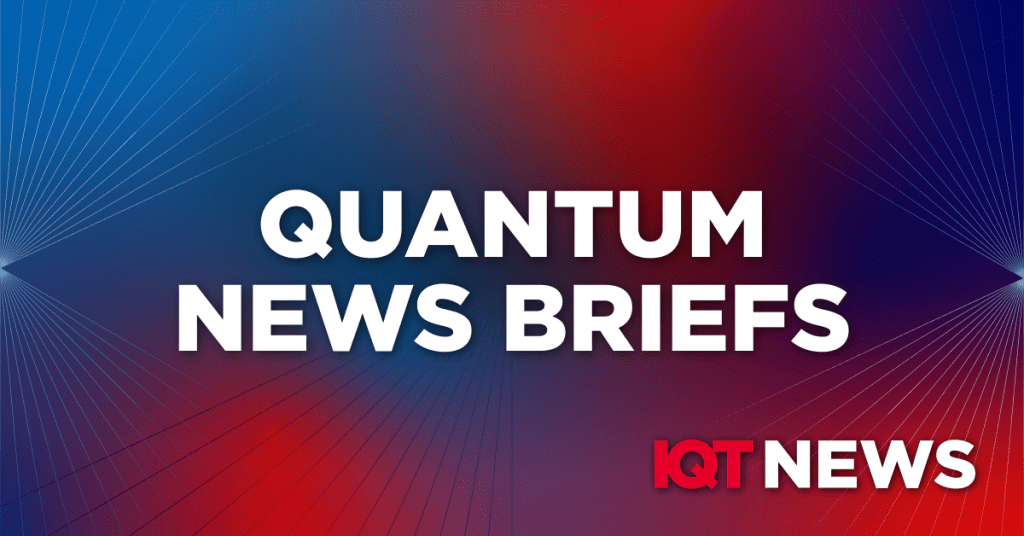Aquark Technologies and the Royal Navy Successfully Test Quantum Sensing at Sea
Aquark Technologies is dedicated to closing the gap between laboratory research and real-world applications, and completion of these sea trials with the Royal Navy demonstrates clear progress. Aquark’s miniature cold atom systems, founded on Aquark’s unique laser-cooling method, known as supermolasses. This method to generate cold atoms does not need an applied magnetic field, reducing the size, weight, power consumption and cost of their sensors. Due to this robustness and portability, it paves the way for applications across not only the military and defence sectors, but energy, critical infrastructure,
Overall, the trial was successful with cold atoms being captured continuously throughout every test and at all locations onboard HMS Pursuer. It was conducted in several realistic operating states, manoeuvres, and key locations on the vessel, testing the boat and the system to their limits. The trial highlighted key areas that require further engineering – specifically magnetic shielding – which will be channelled into Aquark’s prototype atomic clock system (AQlock), the UK’s first commercial cold atom clock.
CU Boulder Develops Quantum Workforce Roadmap with Elevate Quantum, NIST and Quantinuum
Funded by the Colorado Office of Economic Development and International Trade, the CUbit Quantum Initiative collaborated with Elevate Quantum, JILA (programming), and Quantinuum (quantum hardware partner) to develop a strategic framework for growing the quantum industry in Colorado.
With Quantinuum, CU Boulder made quantum error correction easier – a key step toward fault-tolerant quantum computing marking the first time 4 logical qubits have been entangled with better fidelity than the physical analog.
In addition to these leaders in advancing quantum hardware, the Economic Development Administration recently named Elevate Quantum as the nation’s leading official quantum Tech Hub.
Rigetti and Riverlane Showcase Low-Latency Quantum Error Correction as Step Toward Fault Tolerance
Rigetti, a pioneer in full-stack quantum-classical computing, announced on October 31 the successful demonstration of real-time and low latency quantum error correction on a Rigetti quantum computer.
Fault tolerance is the point at which lengthy operations can execute without a single error, due to the application of quantum error correction. Reaching this stage, and in turn realizing the full potential of quantum computers, will require the co-development of quantum error correction and quantum computing technologies. Rigetti and Riverlane’s recent work demonstrating real-time
Among the quantum error correction resources being developed are classical algorithms that identify errors that occur during quantum computation. These classical algorithms are known as decoders. A challenge in improving the utility of decoders is addressing the problem of the backlog of computations that accumulates as the decoder processes data. To avoid the backlog problem, the decoding needs to occur at the same speed as the quantum circuit.
Quantum Computing, Inc. Announces Strategic Partnerships and Pre-Orders Ahead of 2025 Quantum Photonic Chip Foundry Opening
In line with its long-term goals for strategic collaboration in PIC design, manufacturing, testing, and packaging, QCi has executed two memorandums of understanding (MOUs) with prominent partners. The first MOU has been established with Spark Photonics Design, Inc., a leading U.S.-based provider of PIC solutions. This partnership aims to enable the introduction of evaluation chip kits in 2025, providing potential customers with the opportunity to sample QCi Foundry chips for educational and testing purposes.
Additionally, QCi has established a second MOU with Alcyon Photonics, a European-based photonics design company. Together, these partnerships represent a significant advancement for QCi in facilitating the development of process design kits (PDKs) and design services, reinforcing the Company’s commitment to achieve global reach with customers utilizing its TFLN fab line.
